Learning in Another Land
We were walking up Havana's most famous old street, The Prado. The street has a large, park-like central walkway, elevated a few steps above from the lanes of traffic to either side and shaded with century old trees. Kids were playing in the walkway while adults watched them from benches on either side of the parkway. There is something special about this street with many of the buildings on either side restored. We crossed the traffic lanes and walked up the small sidewalk next to the buildings. We looked into an open window and saw about ten young children quietly reading, and my friend, Nikki, who is a teacher from Holland, spoke to the young lady who was obviously in charge of the children.
She told us in good English this was a temporary location for her library. She was teaching reading to the kids, who were all dressed in the standard uniform of all the primary grade school kids in the country. I was stricken with the perfectly quiet and obedient manner of the children. They each had a reading assignment. The teacher invited us inside the library. Books were piled on tables and shelves, and every child had a book and was reading with great interest. Except for brief initial peeks to see who these strangers were, their heads turned back to their books, and there was not even a hint of talking among the children.
I remembered my own grade school classes, and how the arrival of someone new in the classroom was always an excuse for some chatter with the other kids. My teachers seemed to tolerate this break in discipline for a short while, but it didn't happen in Cuba. No, Cubans of any age take education very seriously, and when it is time to study, no other activities are permitted or tolerated. It wasn't just this small group of readers--you could see the respect in the uniformed boys and girls at the grade school across the street from our hotel. When classes were done, they lined up for their rides or walked along the sidewalks talking politely. There were no antics, no exceptions to the decorum, even after school was out. The same was true before classes, when they all took their positions in the school yard to pledge the flag and sing the national anthem.
As we left the library and the small class of readers, there were practically no eyes lifted from the pages. These kids were completely engrossed in their books, the way any serious reader would be. Education in Cuba is a respected right of every individual. They seem to regard it as sacred, and the idea of causing a disruption is the farthest thing from the minds of the students. Surely this attitude is carried forward into adulthood for many. Cuban radio has lots of music and some drama and comedy shows, but above all, are the news programs and the didactic programs. Aniplant presents three radio shows now and one television show every week on animal protection. If Cubans want to learn something about caring for their dogs, they listen to their radios. It isn't hard to find one of Nora Garcia's little lessons about man's best friends.
Judging by the number of people who stop Nora on the street for advice about their pets, the advice she offers about animals is just one more kind of education that informs the lives of Cubans.
Les Inglis
Saturday, March 19, 2011
Subscribe to:
Post Comments (Atom)













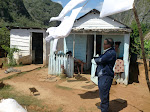




























































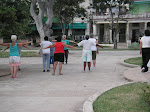
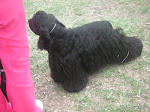
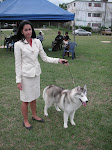


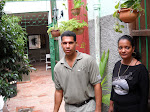





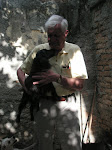



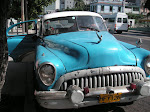

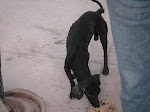


No comments:
Post a Comment